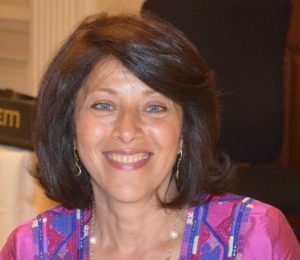 Category: Leadership Updates
Category: Leadership Updates
The Center for Arab American Philanthropy (CAAP) recently welcomed its new board chair, Gheed Amara Itani, following the completion of Rasha Demashkieh’s term.
“My time with CAAP afforded me the privilege of helping to nurture our community’s philanthropic potential while contributing to an incremental yet important shift in how we give,” shares Rasha, who has been involved with CAAP for nearly its entire existence. “I have complete confidence in Gheed’s innovative leadership and unique approach to giving, which will help put our community on the map.”
We sat down with Gheed for a conversation about the path that led her to CAAP and her vision for our community foundation.
Where Does Your Love for Giving Back Come From?
I credit my family, especially my Palestinian parents, as the foundation of my dedication to service and giving. My mother was an activist, coming from a politically engaged family in Palestine. I was exposed to different cultures because my father worked for the World Health Organization (WHO).
It took getting seriously ill in my late 20s to energize me to think more deeply about my legacy. I remember asking myself, “How would I want to be remembered? What and how can I build for my children’s future in this country? What do I want that to look like?”
How Did You Get Involved in Community Work?
I began my journey in philanthropy and community work with the Arab American Educational Foundation (AAEF) in Houston, which mobilized a major fundraising effort to secure the first-ever Chair of Arab Studies at Rice University. Later, when I moved to Boston, my work expanded when I joined friends to help co-found the Center for Arabic Culture (CAC).
In addition to my work with CAAP, I devote my time to teaching English as a Second Language (ESL) to adult immigrants. I also serve on the local chapter of the Palestine Children’s Relief Fund (PCRF).
What Led You to CAAP?
Eventually, the Center for Arabic Culture (CAC) became a cohort member of CAAP’s sister organization, the National Network for Arab American Communities (NNAAC). This connection introduced me more deeply to ACCESS, CAAP’s parent organization. I joined CAAP’s board in April of 2020.
Why Is Giving Back So Important to You?
Giving back is deeply tied to my identity as an Arab American. Our community has often felt invisible; there was fear of openly expressing who we are or even becoming engaged outside of our community. I’m happy to see this fear shifting.
Reading the poetry collection Born Palestinian, Born Black during a difficult time in my life, deeply resonated with me. The book helped me think about and articulate how to effectively represent my Arab American identity. This led me to my work with Arab American non-profits focusing on art, culture, and philanthropy.
What Is Your Vision for CAAP’s Future?
Building on CAAP’s incredible foundation, I envision continuing to expand CAAP’s reach nationally, encouraging more donors to open funds, and solidifying CAAP’s role as a vessel for Arab American philanthropy across the country with an emphasis on outreach to the future young leaders in our community.